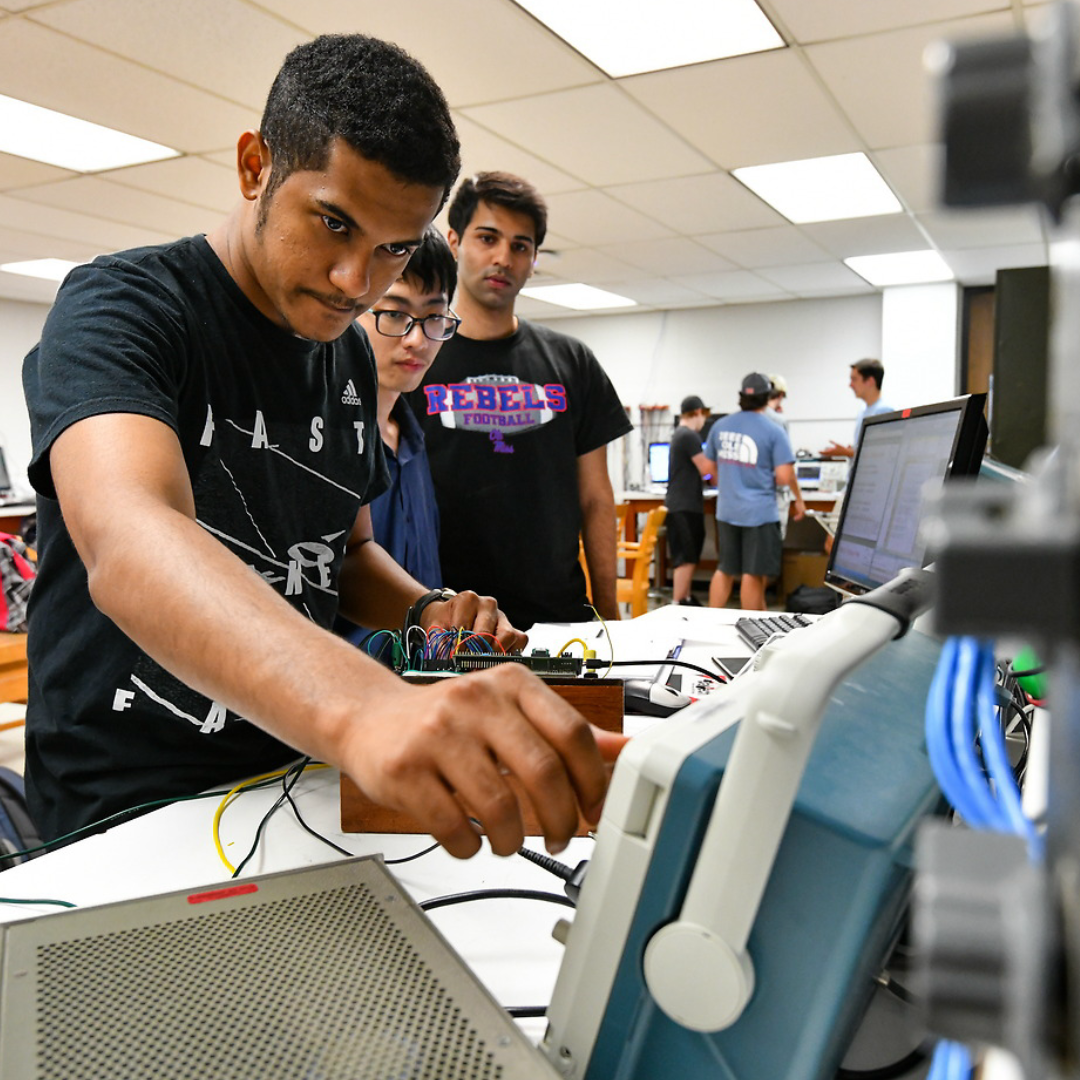Electrical and Computer Engineering, MS
Explore our Master of Science in Engineering Science with emphases in Computer Engineering, Electromagnetics, Electrical Engineering, and Telecommunications.
About the Master of Science in Electrical and Computer Engineering
The Master of Science in Engineering Science from the department of Electrical and Computer Engineering provides students with advanced training in engineering principles, preparing them for careers in industry, research and development, public service, or continued doctoral study. The program is designed to build both technical depth and professional communication skills while offering flexibility through multiple areas of emphasis.
Students can tailor their degree by choosing from four specialization areas: Computer Engineering, Electromagnetics, Electrical Engineering, and Telecommunications. Each specialization allows students to deepen their expertise in their fields—from circuit design and embedded systems to wireless communications and microwave technology.
- Most specializations offer thesis and nonthesis options, giving students the opportunity to pursue research-intensive study or a professionally focused path.
- Regardless of the track, all students complete a combination of advanced coursework and a final oral examination or project defense.
Whether you're looking to advance in your current role or prepare for future academic work, our program offers the foundation and flexibility to meet your goals.
On this Page…
Program Information
Degree
M.S. in Engineering Science
Emphases
Electrical and Computer Engineering
Specializations
Computer Engineering ;
EE (Electromagnetics) ;
Electrical Engineering ;
Telecommunications
Required Credit Hours
30
Program Type
Master's Program
Program Location
School
Computer Engineering Specialization
Find course requirements and other information about the computer engineering specialization in the course catalog.
For questions, contact our graduate program coordinator using the information below.
Md Sakib Hasan
Assistant Professor of Electrical and Computer Engineering
Electromagnetics Specialization
Find course requirements and other information about the electromagnetics specialization in the course catalog.
For questions, contact our graduate program coordinator using the information below.
Alexander Yakovlev
Professor of Electrical and Computer Engineering
Electrical Engineering Specialization
Find course requirements and other information about the electrical engineering specialization in the course catalog.
For questions, contact our graduate program coordinator using the information below.
Lei Cao
Professor of Electrical and Computer Engineering
Telecommunications Specialization
Find course requirements and other information about the telecommunications specialization in the course catalog.
For questions, contact our graduate program coordinator using the information below.
Lei Cao
Professor of Electrical and Computer Engineering
Next Steps
Explore Affordability
We have a variety of scholarships and financial aid options to help make college more affordable for you and your family.
Apply to the University of Mississippi
Are you ready to take the next step toward building your legacy?



